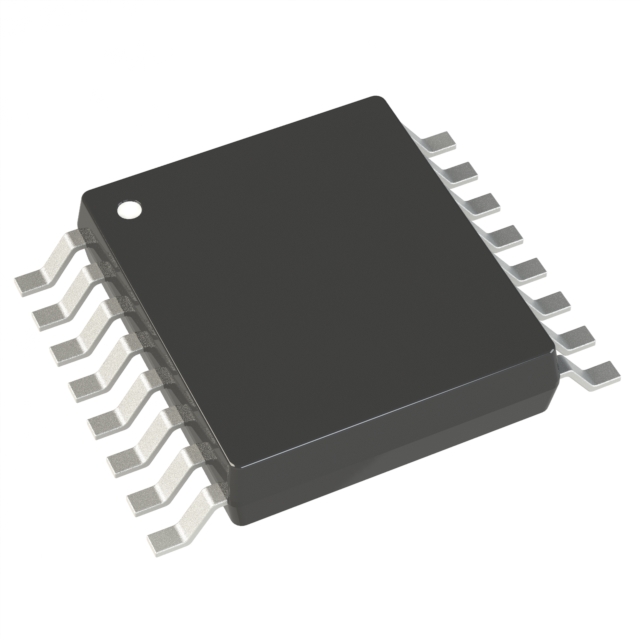| The level of the microcontroller |
| What level is China's microcontroller at? |
- Original content, please do not reprint.
A microcontroller is a computer in the miniature world, or the brain of an electronic device.
And the program, its consciousness, to give it a program, is equivalent to giving it human consciousness, so that it works according to human will
Although its performance cannot be compared to that of a real computer, it is indispensable for controlling electrical appliances. In the world of microcontrollers, there are actually different
levels of microcontrollers,each with distinct functions and, of course, varying prices and application areas. After all, different levels accomplish different missions.
The level of the microcontroller
Almost all the electronic products you come into contact with in your life contain microcontrollers, such as mobile phones, computers, household appliances, and personal computers, among
others. Their numbers far exceed those of humans, making them a significant group. So, what determines the value and status of microcontrollers?
We can use some cases from human society to help everyone understand, for example, there are three technical workers: the first is an ordinary worker, the second is intermediate, and the third
is a master-level senior technician. An ordinary worker can only complete one task per hour, while an intermediate worker can complete five tasks per hour. A master worker can complete more
than ten tasks per hour. Therefore, the value of technical workers at different stages is quite different. This is also true in the world of microcontrollers.
The key to whether a microcontroller can handle more or fewer tasks lies in its registers. The address register plays a crucial role; the wider the register, the more storage addresses it can hold.
Once there are more storage addresses, the CPU can read more data and perform more tasks. Registers typically indicate their width with 8 bits, 16 bits, or 32 bits. We can apply this to the
previous example: 8 bits is like a regular technician, 16 bits is like an intermediate technician, and 32 bits is like a senior technician, each with different capabilities and compatibility in handling tasks.
Of course, because the capabilities of microcontrollers are different, they can do completely different things.
For example, in the field of artificial intelligence machine learning, it requires analyzing a large amount of data,A 32-bit register can match such a high-profile figure; it can boost processing speed and
handle the data analysis and model training required for AI. If it were an 8-bit microcontroller, it might not be able to shoulder such high expectations, at most handling some small household appliances.
Of course, in reality, there are also 64-bit microcontrollers, which have even greater capabilities.Of course, to evaluate the level of a microcontroller, relying solely on registers is not enough; it also depends
on its processing speed, storage capacity, and power consumption. These issues go beyond just the registers themselves; they involve problems related to chip manufacturing processes.
For example, the smaller the number of nanometers of a chip, the stronger its function. Because the distance between transistors is very close, its processing speed is faster and power consumption is lower.
It is not difficult to understand why every time TSMC has a breakthrough in the number of nanometers of a chip, it can make the whole world shake.
What level is China's microcontroller at?
So, let's take a step back and look at the current status of Chinese microcontrollers? Currently, most Chinese microcontrollers on the market have reached up to 32-bit. A few Chinese microcontrollers can
achieve 64-bit, but these are relatively rare, with most falling between 16-bit and 8-bit.
Although in terms of appearance, it is already very close to imported microcontrollers. Are everyone using 32-bit and 16-bit microcontrollers? Then why does it still feel a bit lacking in quality? There are mainly
two reasons for this.
The first is related to manufacturing processes. As mentioned earlier, the lower the nanometer count of a chip, the lower its processing efficiency and power consumption will be. When comparing Chinese chips
with imported ones, the external parameters are not much different, but there is still a noticeable gap in actual internal capabilities. Of course, regarding the processing capability, power consumption, and
performance of microcontrollers, besides achieving a certain level of manufacturing standards, the design capability of chip architecture also plays a crucial role in performance. Therefore, testing a chip's capabilities
is a comprehensive reflection of its overall performance.If we must use a metaphor, we mentioned technical workers before, there are primary and intermediate and senior technical workers. So our domestic microcontroller
should be accurate to say that it belongs to the intermediate level.
We each live every day within the law of cause and effect. The result of any event in your life is always composed of one or more accompanying causes. No matter what, although China's chip industry has not yet achieved
the desired outcome,we have sown a beautiful seed. Believe in the future. This rich harvest belongs to those who sow good seeds.








